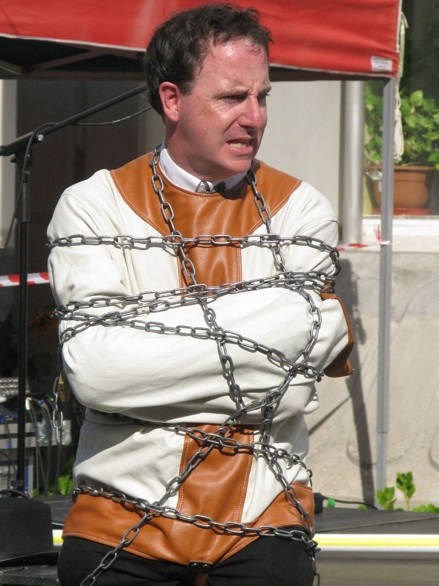Politicians and economists in mid-2010 had predicted economic growth in 2011 and then recovery in 2012. Both failed to happen.
Following three consecutive quarters of negative growth, Government statisticians said the economy grew by 1 per cent during Q3 2012, the highest growth since Q3 2007. Ticket sales for the London 2012 Olympics added 0.2 per cent to the UK’s Gross Domestic Product.
But across London, by late 2012, ongoing austerity and further economic contraction - a possible ‘triple dip’ recession - seemed likely. Bank of England governor Mervyn King, the UK’s chief central banker, warned in November 2012 that recovery would be ‘a long and winding road’.
Inflation
Annual inflation stood at 3.2% in October 2012, according to the wider Retail Prices Index, up from 2.6% in September.
Londoners complained about the immorality of fuel and transport price rises. Average annual household bills for gas and electricity mounted to £1,200. Resentment mounted against highly profitable energy providers.
Rail and metro costs for commuters continued to rise above inflation. Unpopular private rail companies, and the publicly-funded Transport for London, claimed fare prices covered much-needed investment in rolling stock and infrastructure.
Rising university tuition fees, food, rental and home-owner costs continued to put Londoners’ real incomes under pressure during 2012. The standard 20 per cent rate of Value Added Tax added to the cost of good services - except food, children’s clothes and public transport.
Incomes
London’s long history of vast income disparity showed no signs of disappearing in 2012. The uber-wealthy even enjoyed a reduction in top rate tax from 50% to 45% - whilst an estimated 500,000 working Londoners received less than the London Living Wage of £8.55 per hour.
Average income for inner London residents stood at £23,850 and at £17,890 in outer London (2010 figures). Employees in many cases were asked to accept a pay freeze or even a pay cut in order to preserve their jobs.
London employers remained legally obligated to pay the National Minimum Wage of £6.19 per hour (over 21s) and £4.98 (18-20s). But the London Living Wage of £8.55 remained voluntary for private and public sector employers.
Work and jobs
The number of Londoners aged 16 to 64 in work stood at 69.6% in the three months to September 2012, according to government data. This represented a 1% rise compared to the three months up to June 2012.
London continued to have the lowest rate of production sector jobs in the UK with only 3.2%. But the capital had the highest proportion of service sector jobs with 91.6%, highlighting London’s heavy economic dependency on financial services, catering, retail, tourism, hotels and domestic work.
The east London borough of Newham - an ‘Olympic borough’ - had an employment rate of 57.2% between July 2011 and June 2012 - the lowest in the UK.

